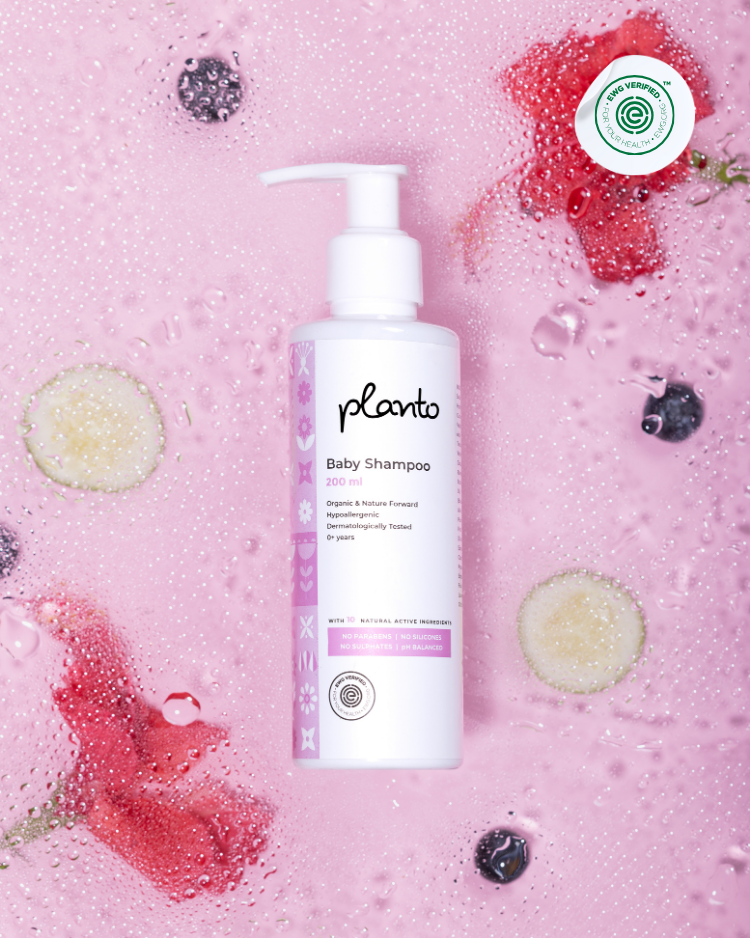
Essential Tips For Baby Skin Care in Winter
Share

Introduction: Baby Skin Care In Winter
Winter brings a magical touch to the world, turning landscapes into snowy wonderlands. For babies, however, the winter weather can be harsh on their delicate skin. Parents often find themselves wondering how to take care of baby skin in winter to keep it soft, healthy, and free from irritation.
The combination of cold weather and dry air can strip natural moisture from your baby's skin, making it prone to dryness and other skin conditions. Don't worry, there are gentle ways to protect your baby and keep their skin glowing all season long.
Understanding Baby's Delicate Skin in Winter
Your baby's skin is more sensitive than adult skin. It's thinner, has less natural oils, and is more susceptible to the effects of cold weather. The dry air and indoor heating can lead to a loss of natural moisture, causing dryness, redness, and even diaper rash.
Sensitive skin needs extra care during the winter months to prevent discomfort and skin conditions like cradle cap. Knowing how to care for baby skin in winter is essential for your little one's well-being.
Gentle Bathing Practices
Bath time doesn't have to be a drying experience. Using lukewarm water instead of hot water helps preserve your baby's natural oils. Limiting baths to two or three times a week prevents the skin from becoming too dry.
Choosing a gentle baby cleanser that's fragrance-free is crucial. PlantoStore's Baby Body Wash is an excellent option, as it's specially formulated for sensitive skin and is free from harsh chemicals.
After bathing, gently pat your baby dry with a soft towel, avoiding any rubbing that might irritate the skin.
Moisturizing Is Key
Keeping your baby's skin hydrated is vital during the winter months. Applying a gentle, fragrance-free moisturizer immediately after bath time locks in natural moisture. PlantoStore's Baby Lotion is a plant-based, toxin-free option that nourishes delicate skin without any harmful additives.
Massaging the lotion into your baby's skin can also be a soothing bonding experience. Pay special attention to areas prone to dryness, like the hands, face, and any dry patches. Planto Massage Oil can be the perfect massage oil for your baby as it enables post bath nourishment to the skin preventing dryness and rashes.
Dressing for the Weather
Choosing the right clothing helps protect your baby's skin from the harsh winter elements. Dressing your little one in soft, breathable layers made from natural materials like cotton allows the skin to breathe while keeping them warm.
Avoid synthetic fabrics that can irritate sensitive skin. Remember, it's best to dress your baby in one more layer than you're wearing. Protecting their hands and face with mittens and a hat helps prevent chapped lips and cheeks caused by cold wind.
Maintaining Indoor Humidity
Indoor heating keeps the home cozy but can dry out the air, affecting your baby's skin. Using a humidifier in your baby's room adds moisture back into the air, helping to prevent dry skin and chapped lips.
It's essential to clean the humidifier regularly to prevent mold and bacteria growth. This simple step can make a significant difference in your baby's skin care in winter.
Protecting the Face and Lips
Your baby's face is often exposed to the elements, making it prone to dryness and irritation.
Applying a thin layer of a gentle, fragrance-free moisturizer like PlantoStore's Baby Lotion before going outside creates a protective barrier against the cold weather. For chapped lips, a small amount of petroleum jelly can provide relief and prevent further dryness.
Always ensure products are safe for babies and free from harmful ingredients.
Home Remedies For Baby Skin Care In Winter
Nature offers some excellent solutions for baby skin care in winter and we can easily do some home remedies:
- Oatmeal Baths: Adding finely ground oatmeal to your baby's bath can soothe dry and itchy skin.
- Coconut Oil Massage: Gently massaging organic coconut oil into the skin provides natural moisture and helps with conditions like cradle cap.
- Shea Butter: Using shea butter on dry areas nourishes and protects sensitive skin.
- Humidified Air: As mentioned, keeping the air moist with a humidifier prevents the skin from drying out.
Always perform a patch test before using any new home remedies to ensure your baby's skin doesn't react adversely.
Choosing The Right Baby Skin Care Products in Winter
Selecting the right products is crucial when considering how to care baby skin in winter. Products should be gentle, free from harsh chemicals, and specifically formulated for babies. PlantoStore offers a range of baby skin care products in winter that meet these criteria. The products are :
- Plant-based
- Toxin-free
- Fragrance-free
- PEG-free
- Sulfate-free
- Paraben-free
- Cruelty-free
The Planto Baby Pure Care Bundle includes everything you need for your baby's skin care routine, ensuring their skin stays soft and healthy during the winter months.
Keeping An Eye On Skin Conditions
Winter can exacerbate certain skin conditions like eczema and diaper rash. Monitoring your baby's skin for signs of irritation or dryness allows you to address issues promptly.
If you notice persistent dryness, redness, or rash, consult your pediatrician for advice tailored to your baby's needs. Gentle care and the right products often prevent minor issues from becoming significant concerns.
While moisturizing the skin externally is vital, keeping your baby hydrated from the inside also helps maintain natural moisture. For babies who are bottle-feeding or breastfeeding, regular feedings ensure they stay hydrated. If your baby is eating solids, offering small amounts of water can be beneficial. Hydration supports overall health, including the skin.
List of Essential Winter Baby Skin Care Tips
Here are some skin care tips for your baby skin:
- Use lukewarm water for baths, avoiding hot water that dries out the skin.
- Limit baths to two or three times a week to preserve natural oils.
- Choose gentle, fragrance-free cleansers and moisturizers designed for sensitive skin.
- Dress your baby in soft, breathable layers to protect against cold weather.
- Use a humidifier to maintain moisture in the air and prevent dry skin.
- Protect your baby's face and lips with appropriate moisturizers and balms.
- Consider home remedies for baby skin care in winter, like oatmeal baths and coconut oil.
- Monitor for skin conditions like cradle cap and diaper rash.
- Keep your baby hydrated to support natural moisture from within.
- Pat your baby dry after baths to avoid irritation.
Conclusion
Caring for your baby's delicate skin during the winter doesn't have to be a daunting task. Understanding how to take care of baby skin in winter involves gentle practices, the right baby skin care products in winter, and a bit of extra attention.
Incorporating natural home remedies and choosing products that are free from harsh chemicals, you can protect your baby from the effects of cold weather and dry air. With these essential tips, you'll keep your little one's skin soft, healthy, and ready for all the cuddles and kisses.
FAQs
- How often should I bathe my baby during winter?
Bathing your baby two or three times a week is sufficient in winter to prevent drying out their skin. Using lukewarm water and gentle cleansers helps maintain natural moisture.
- What can I do for my baby's chapped lips?
Applying a small amount of petroleum jelly or a baby-safe lip balm can soothe and protect chapped lips. Ensure the product is safe for infants and free from harmful ingredients.
- Can I use regular lotion on my baby's skin?
It's best to use lotions specifically formulated for babies, like PlantoStore's Baby Lotion, as they are designed for sensitive skin and are free from harsh chemicals.
- How can I prevent diaper rash in winter?
Changing diapers frequently, using gentle wipes, and applying a protective barrier cream can help prevent diaper rash. Allowing the diaper area to air out when possible also helps.
- Are home remedies safe for my baby's skin?
Many home remedies are safe, but always perform a patch test first. Consult your pediatrician if you're unsure about using a particular remedy on your baby's skin.

